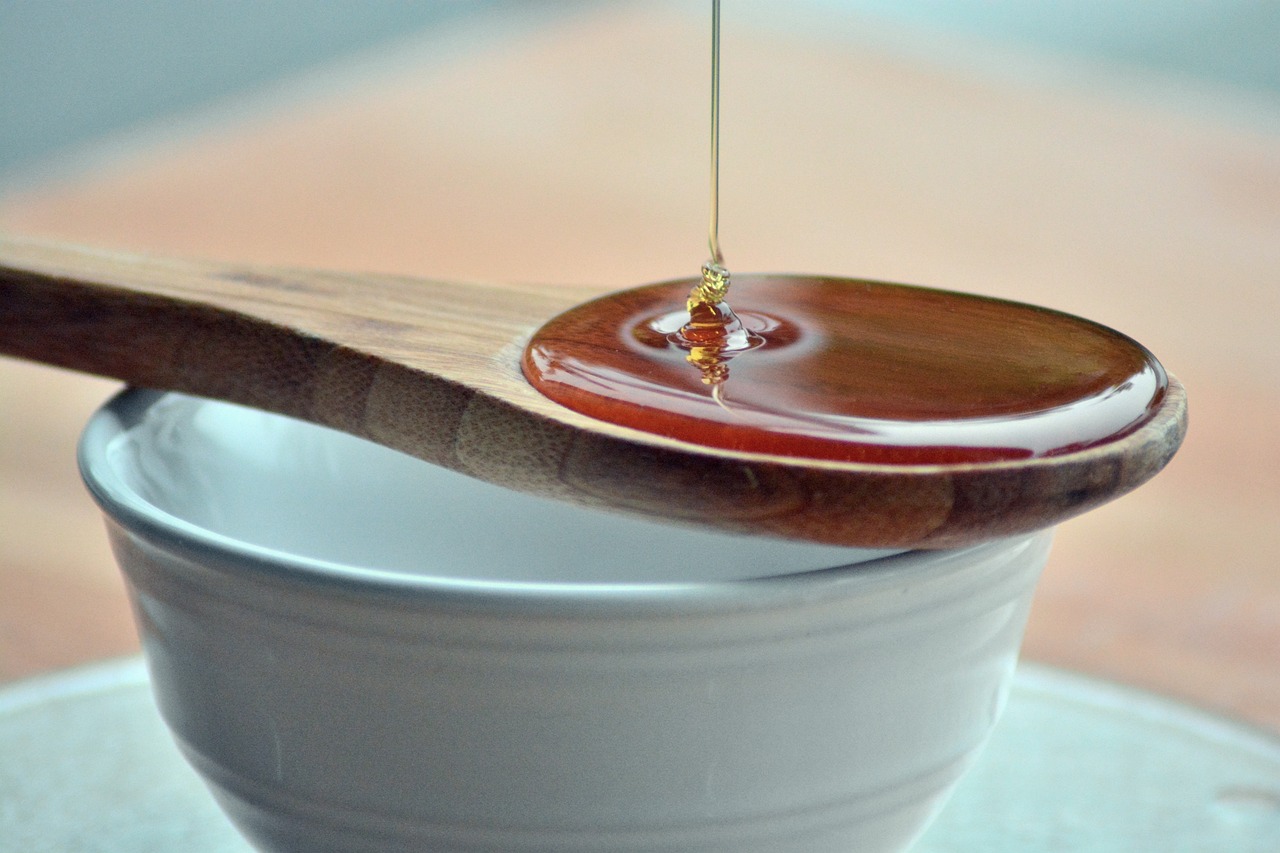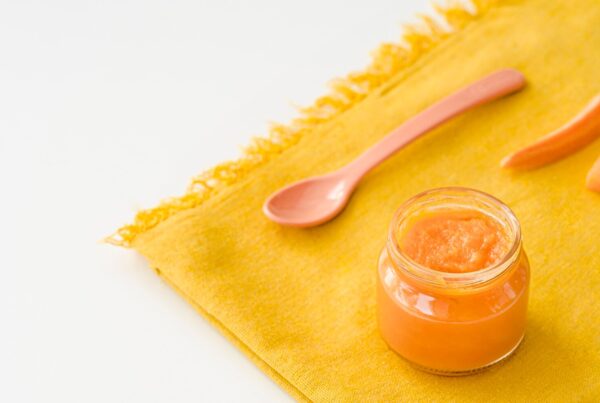
If you’re suffering from a cough, you know how uncomfortable and annoying it can be. Fortunately, nature provides us with many remedies to soothe our symptoms. One of the most effective natural remedies for cough is honey. Honey has been used for centuries as a natural cough suppressant, and its soothing properties can help alleviate a scratchy throat.
In this section, we will explore the healing properties of honey for cough relief, different ways to use honey as a cough remedy, and safety considerations to keep in mind.
Key Takeaways
- Honey is a natural remedy for cough that can soothe your throat.
- Honey can be used as a cough syrup or combined with other natural ingredients to make homemade cough remedies.
- When using honey for cough relief, it’s important to consider safety precautions and potential allergies.
The Healing Properties of Honey for Cough
Honey has been used for centuries as a natural remedy for cough relief, and for good reason. It is packed with beneficial properties that can help soothe a sore throat and ease cough symptoms.
One of the most notable benefits of honey for cough relief is its antibacterial properties. Honey contains hydrogen peroxide, which helps kill bacteria and viruses in the throat, reducing inflammation and irritation. This makes it an excellent choice for treating a cough caused by a bacterial infection.
In addition to its antibacterial properties, honey is also a natural humectant, which means that it helps to retain moisture. This can be particularly helpful for dry coughs, which are often caused by a lack of moisture in the throat. Honey’s ability to retain moisture can help soothe the throat and reduce coughing.
One popular remedy is to mix honey and lemon for cough relief. Lemons are high in vitamin C, which can boost the immune system and help fight off infections. When combined with honey’s antibacterial properties, this can be a powerful combination for relieving cough symptoms.
It is important to note, however, that honey should not be given to children under the age of 1 due to the risk of botulism. Additionally, individuals with a pollen allergy may experience allergic reactions to honey.
Overall, honey is a natural and effective remedy for cough relief, thanks to its antibacterial and humectant properties. For even greater benefits, consider combining it with other natural remedies, such as lemon or ginger.
Homemade Honey Cough Syrup Recipes
Honey is a natural substance that has been used for centuries to alleviate cough symptoms. In this section, we will provide some easy homemade cough syrup recipes using honey as the main ingredient.
Honey cough syrup is an effective natural remedy that can soothe your throat and reduce coughing. Here are some recipes you can try at home:
- Honey and Lemon Cough Syrup: Mix one tablespoon of honey with the juice of one lemon in a small saucepan. Heat the mixture over low heat until it becomes a syrup. Take one teaspoon as needed to soothe cough symptoms.
- Honey and Ginger Cough Syrup: Combine two tablespoons of honey and two tablespoons of grated fresh ginger in a small pot. Add enough water to cover the ginger and bring the mixture to a simmer over low heat. Allow the mixture to cool, strain, and store in a jar. Take one teaspoon as needed to alleviate cough symptoms.
- Honey, Onion, and Garlic Cough Syrup: Mix one chopped onion and four cloves of chopped garlic with one cup of honey in a saucepan. Heat the mixture over low heat for 30 minutes, stirring occasionally. Remove from heat and let it cool, then strain the mixture and store in a jar. Take one teaspoon as needed to soothe cough symptoms.
- Honey and Cinnamon Cough Syrup: Mix one tablespoon of honey with 1/4 teaspoon of cinnamon powder in a small bowl. Take one teaspoon as needed to relieve cough symptoms.
These homemade cough syrups are a great alternative to over-the-counter cough medicines, which can be filled with artificial ingredients and have unwanted side effects. By making your own cough syrup with honey, you can ensure that you are using natural ingredients that are safe and effective.
However, it’s important to note that these recipes are not a substitute for professional medical advice. If your cough persists or is accompanied by other symptoms, it’s best to consult a healthcare professional.
In the next section, we will explore the combination of honey and ginger as a remedy for cough relief.
Honey and Ginger for Cough Relief
When it comes to natural remedies for cough, the combination of honey and ginger is a powerful and effective option. Ginger has long been used in traditional medicine for its anti-inflammatory and soothing properties. When combined with honey, which has antibacterial properties, the two ingredients work synergistically to calm cough symptoms and soothe the throat.
To use honey and ginger for cough relief, one option is to make a ginger tea and add honey to taste. Simply steep sliced ginger root in hot water for a few minutes, then strain and add honey. Alternatively, a simple homemade cough syrup can be made by mixing grated ginger with honey and a squeeze of lemon juice. This can be consumed by the spoonful as needed.
It’s worth noting that ginger may not be suitable for everyone, particularly those taking certain medications or with certain medical conditions. As with any natural remedy, it’s important to consult with a healthcare professional before use, especially if you are currently taking prescription medication.
Honey and Cinnamon for Cough Relief
Honey and cinnamon are two powerful natural remedies known for their anti-inflammatory and antibacterial properties. When combined, they can work synergistically to provide relief for cough symptoms.
Cinnamon has warming and soothing properties that can help alleviate coughing, throat irritation, and congestion. It contains compounds that can reduce inflammation and fight harmful bacteria in the respiratory system.
When mixed with honey, cinnamon can enhance its effectiveness as a cough remedy. Honey is a natural cough suppressant that can soothe the throat, reduce coughing, and provide antibacterial benefits.
To use honey and cinnamon as a cough remedy, mix one teaspoon of cinnamon powder with one tablespoon of honey. You can either consume the mixture directly or add it to warm water or tea.
Another option is to make a honey and cinnamon syrup by boiling a teaspoon of cinnamon powder in a cup of water for 15 minutes. Let the mixture cool, then add a tablespoon of honey. Take one teaspoon of the syrup every few hours to alleviate cough symptoms.
It’s important to note that cinnamon can be potent and should be used in moderation, especially for individuals with sensitive stomachs. Additionally, some people may be allergic to cinnamon, so it’s best to test a small amount before consuming a larger dose.
Honey and cinnamon have been used for centuries as natural remedies for a variety of ailments, including cough relief. Incorporating them into your cough remedy regimen can provide a safe and effective way to soothe your throat and alleviate cough symptoms.
Honey and Dry Cough: Effective Relief
Dry cough can be irritating and uncomfortable, but honey can provide soothing relief. Honey is a natural cough suppressant that can ease the tickle in your throat and reduce coughing. Unlike over-the-counter cough medicine, honey is all-natural and does not contain any chemicals or additives.
When using honey for cough relief, it is important to choose the right type of honey. Manuka honey, for instance, has been shown to have potent antibacterial properties that may help reduce inflammation in the throat. Raw honey is also a good choice because it retains more of its natural enzymes and nutrients.
There are several ways to use honey for dry cough relief. One simple method is to take a spoonful of honey straight from the jar. You can also add honey to tea or hot water with lemon for an extra boost of vitamin C.
If you prefer a more potent cough syrup, you can make your own at home using honey and other natural ingredients. Here’s a recipe for a simple honey cough syrup:
| Ingredients: | Directions: |
|---|---|
| 1/2 cup raw honey | 1. Warm the honey in a saucepan over low heat until it becomes thin and runny. |
| 1/4 cup apple cider vinegar | 2. Add the apple cider vinegar and stir well. |
| 1/4 cup water | 3. Slowly add the water while stirring constantly. |
| 1/4 tsp cayenne pepper (optional) | 4. If desired, add cayenne pepper for extra relief. |
Take 1-2 tablespoons of this honey cough syrup every few hours, as needed.
When using honey for cough relief, it is important to take proper precautions. Do not give honey to infants under one year old, as it can cause infant botulism. Also, be aware of any potential allergies to honey and consult a healthcare professional if you have any concerns.
In summary, honey is a safe and effective natural remedy for dry cough. Whether consumed straight from the jar, added to tea, or used in homemade cough syrup, honey can provide soothing relief for irritated throats and reduce coughing.
Safety Considerations and Precautions
Honey is generally considered safe and has been used as a natural remedy for centuries. However, there are some safety considerations and precautions to keep in mind when using honey for cough relief.
Allergies: Some individuals may have an allergic reaction to honey. If you have never consumed honey before, start with a small amount to check for any adverse reactions. If you experience symptoms such as swelling or difficulty breathing, seek medical attention immediately.
Children: Honey should not be given to infants under one year of age. It can cause infant botulism, a potentially life-threatening condition. For children over one year of age, it is generally safe to use honey for cough relief, but consult a pediatrician first.
Dosage: The recommended dosage for honey as a cough remedy is typically 1-2 teaspoons per day. Consuming too much honey can lead to stomach upset and diarrhea.
Consult a healthcare professional: If your cough persists for more than a week, consult a healthcare professional. It may be a sign of an underlying medical condition that requires treatment.
While honey is a natural and safe remedy for cough relief, it is important to use it responsibly and in moderation. By following these safety considerations and precautions, you can enjoy the soothing benefits of honey without any adverse effects.
The Science Behind Honey for Cough Relief
Honey has been used for centuries as a natural remedy for cough and sore throat. But what is the science behind its effectiveness?
Studies have shown that honey has antibacterial, antioxidant, and anti-inflammatory properties that can help soothe the throat and reduce cough symptoms. One study found that honey was just as effective as dextromethorphan, a common cough suppressant found in over-the-counter medications.
Honey also contains natural sugars that can help thin out mucus and make it easier to cough up. This can be especially helpful for those with a productive cough.
However, it is important to note that honey should not be given to children under the age of one due to the risk of infant botulism.
When choosing honey for cough relief, it is recommended to use raw, unfiltered honey. Processing and filtering can remove some of the beneficial compounds found in honey.
The Power of Manuka Honey
Manuka honey, which comes from the New Zealand manuka tree, has been found to have even stronger antibacterial properties than regular honey. In fact, it has been FDA approved for use as a wound dressing due to its ability to fight bacteria and promote healing.
When it comes to cough relief, manuka honey may be especially beneficial for those with a bacterial infection. However, it is important to note that manuka honey can be more expensive than regular honey.
Overall, the scientific research supports the effectiveness of honey as a natural remedy for cough relief. It is a safe and soothing option that can be used in combination with other natural remedies for a more comprehensive approach to managing cough symptoms.
Other Natural Remedies for Cough
In addition to honey, there are several natural remedies that can help alleviate cough symptoms. These remedies can work synergistically with honey to provide comprehensive relief.
Herbs
Herbs such as thyme, eucalyptus, and marshmallow root have been used for centuries for their cough-relieving properties. Thyme has antispasmodic and expectorant qualities, eucalyptus has a soothing effect on the throat, and marshmallow root helps to soothe the lining of the throat. These herbs can be brewed as teas or added to homemade cough syrups.
Teas
Teas made with ginger, peppermint, and licorice root can also help alleviate cough symptoms. Ginger has anti-inflammatory properties, peppermint has a soothing effect on the throat, and licorice root helps to reduce throat irritation. These teas can be enjoyed alone or combined with honey for added cough relief.
Lifestyle Changes
Certain lifestyle changes can also help alleviate cough symptoms. Staying hydrated, getting plenty of rest, and avoiding smoke and other irritants can help reduce coughing. Additionally, using a humidifier or taking a steamy shower can help moisturize the airways and soothe cough symptoms.
While these natural remedies can be effective in managing cough symptoms, it’s important to consult with a healthcare professional if cough symptoms persist or worsen.
Tips for Using Honey for Cough Relief
If you’re planning to use honey as a natural remedy for cough, here are some tips for maximizing its effectiveness:
- Choose raw, unprocessed honey: Raw honey contains more beneficial nutrients and enzymes than processed honey, making it a better choice for cough relief.
- Use darker honey: Darker honey varieties like buckwheat honey have higher levels of antioxidants and antibacterial properties, making them more effective for cough relief.
- Start with a small amount: Begin with a teaspoon of honey to test for any potential allergic reactions or adverse effects.
- Take honey on its own: Avoid mixing honey with hot liquids as it can reduce its healing properties. Instead, consume honey on its own or mixed with room temperature liquids.
- Store honey properly: Keep honey in a cool, dry place away from direct sunlight to maintain its potency.
Remember that honey is not a substitute for medical treatment, and if your cough persists or worsens, it’s important to consult a healthcare professional.
Conclusion
In conclusion, honey is a natural remedy that is widely used to alleviate cough symptoms effectively. Its antibacterial properties and ability to soothe the throat make it an excellent choice for cough relief.
Throughout this article, we’ve discussed the healing properties of honey for cough, its various uses, and homemade cough syrup recipes. We explored the use of honey with other natural ingredients such as ginger and cinnamon to create a potent cough remedy.
Safety should always be a top priority when using natural remedies, and we addressed the potential allergies and dosage recommendations for using honey as a cough remedy.
Scientific research supports the effectiveness of honey for cough relief, making it a trustworthy option for those looking for a natural cough remedy.
Other natural remedies such as herbs, teas, and lifestyle changes can complement the use of honey for a more comprehensive approach to managing cough symptoms.
Our tips for using honey effectively include choosing the right type of honey, storage tips, and ways to enhance its effectiveness.
Overall, honey is a safe and soothing option for alleviating cough symptoms. We encourage readers to give it a try and experience the natural healing benefits.
FAQ
Q: Can honey really help with a cough?
A: Yes, honey has been used for centuries as a natural remedy for cough relief. It has soothing properties that can help alleviate cough symptoms and soothe the throat.
Q: How should I use honey for a cough?
A: Honey can be consumed on its own or mixed with warm water, lemon, ginger, or cinnamon for added benefits. It can also be used to make homemade cough syrups.
Q: Is honey safe for everyone to use?
A: Honey is generally safe for adults and children over the age of one. However, it should not be given to infants under one year old due to the risk of botulism. Additionally, individuals with allergies to honey should avoid its use.
Q: How much honey should I take for a cough?
A: The recommended dosage of honey for cough relief is about 1-2 teaspoons per day. However, it’s always best to consult with a healthcare professional for personalized advice.
Q: Can honey be used for both dry and wet coughs?
A: Yes, honey can be used for both dry and wet coughs. Its soothing properties can help relieve irritation and reduce coughing, regardless of the type of cough.
Q: Are there any side effects of using honey for a cough?
A: In general, honey is safe and well-tolerated. However, some individuals may experience allergic reactions or digestive discomfort. If you experience any adverse effects, discontinue use and consult a healthcare professional.
Q: Can honey be used as a substitute for cough medicine?
A: Honey can be used as a natural alternative to over-the-counter cough medicine. However, it’s always recommended to consult with a healthcare professional before making any changes to your medication regimen.
Q: How long does it take for honey to relieve a cough?
A: The time it takes for honey to relieve a cough can vary from person to person. Some individuals may experience relief within a few days, while others may take longer. Consistent use and patience are key.
Q: Can honey be used alongside other cough remedies?
A: Yes, honey can be used alongside other cough remedies. It can complement the effects of herbal teas, steam inhalation, and lifestyle changes for a more comprehensive approach to cough relief.
Q: Can I use any type of honey for a cough?
A: While any type of honey can be used for a cough, raw and unprocessed honey is often recommended for its higher concentration of beneficial compounds. However, if raw honey is not available, any type of honey can still provide some relief.





